Have you ever heard of TOPIK? If you are interested in studying or working in Korea, you may have heard of it before. It stands for Test of Proficiency in Korean, which is similar to TOEIC for English, HSK or TOCEL for Chinese, and JLPT for Japanese. If you want to attend a Korean university or get a job in Korea, TOPIK is the most basic and important certification you need. However, if it's your first time preparing for TOPIK, you may feel confused about the test cycle and registration process. Let's take a look at what TOPIK is, its advantages, and how to apply for it!
About TOPIK
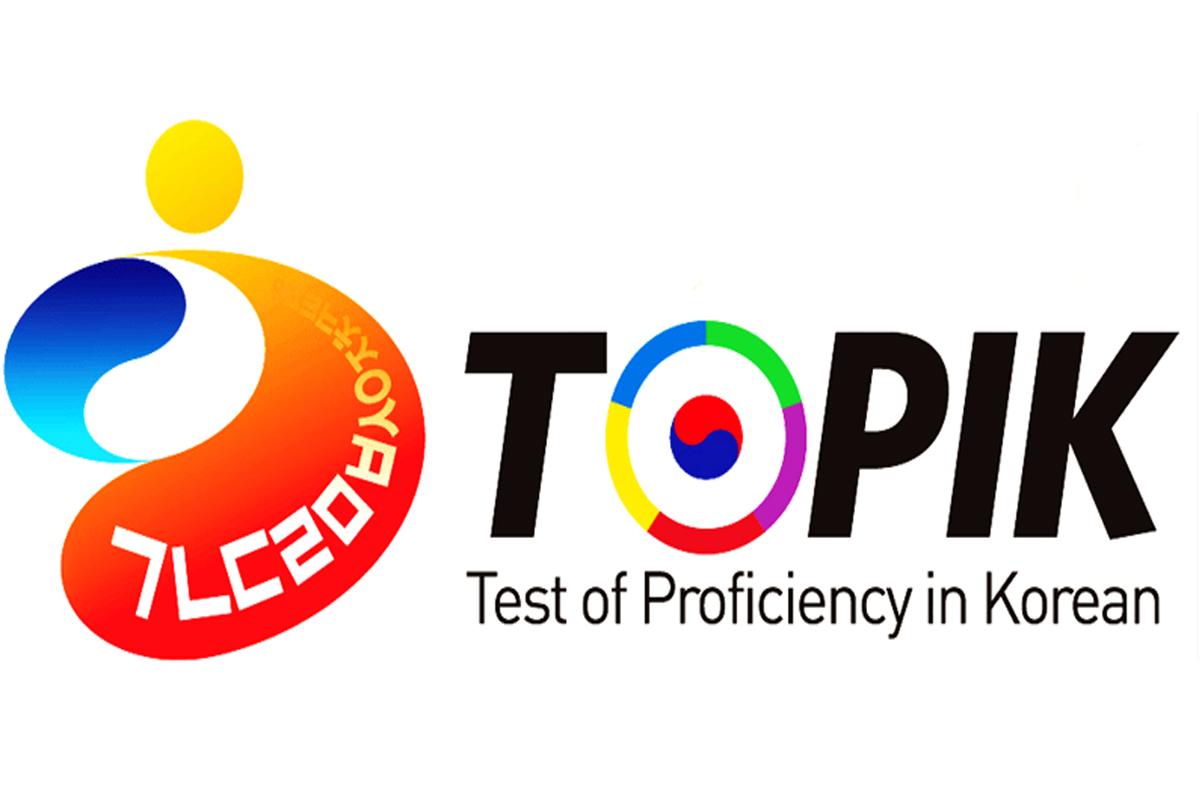
The Korean government requires foreign students studying in Korea to have a certain level of Korean language proficiency in order to improve the quality of their studies. Foreign students who lack the necessary Korean language skills for academic and daily life may face difficulties during their studies in Korea.
In addition, to enter a Korean university, a Korean language proficiency test administered by the National Institute for International Education is required. The purpose of the Korean Language Proficiency Test is to provide direction for foreign students who do not use Korean as their mother tongue and to measure their Korean language proficiency, which can be used for studying abroad, employment, etc.
For regular degree programs at universities, a TOPIK score of level 3 or higher is generally required for admission, and level 4 or higher is required for graduation.
TOPIK is administered six times a year in Korea (January, April, May, July, October, and November), and specific test dates can be found on the official TOPIK website.
Here's a summary of the TOPIK:
Goal:
- Provide direction for foreign students who do not use Korean as their mother tongue and expand the use of Korean language.
- Measure and evaluate Korean language proficiency and use the results for studying abroad, employment, etc.
Eligibility
- Foreigners who do not use Korean as their mother tongue.
- Korean language learners and those who wish to study abroad in Korean universities.
- Those who hope to be employed by Korean companies or public institutions.
- Foreign nationals currently enrolled or graduated from foreign schools.
Exam Fee
- TOPIK I: KRW 40,000
- TOPIK II: KRW 55,000
Validity
- Valid for two years from the date of score announcement.
Organizer
- National Institute for International Education, Ministry of Education
TOPIK Levels
| Level | Point Criteria | Evaluation Criteria | |
| TOPIK I | 1 | 80~139 | The individual is capable of using basic language skills necessary for everyday activities, such as introducing him/herself, shopping, and ordering food, and understanding and expressing him/herself when conversing about him/herself, his/her family or pastimes, the weather, or other casual or familiar topics. The individual knows around 800 basic words and can form simple sentences with an understanding of basic grammar. He/she is also capable of understanding and forming practical sentences and simple sentences used in everyday life. |
| 2 | 140~200 | The individual has the language skills necessary for everyday life, such as calling and asking for a favor, and for using the post office, bank, or public facilities. He/she knows some 1,500 to 2,000 words and can understand and compose paragraphs about a casual or familiar topic. He/she can also distinguish which linguistic form to use in formal and informal situations. | |
| TOPIK II | 3 | 120~149 | The individual has no problem doing normal, day-to-day activities and has the basic language skills to use various public facilities and maintain interpersonal relationships. He/she can understand and express him/herself regarding not only familiar and specific topics but also familiar social issues in paragraphs. He/she is also capable of distinguishing the basic features of colloquial language and literary language and can understand and use the two forms of language him/herself. |
| 4 | 150~189 | The individual has the language skills to use various public facilities and maintain interpersonal relationships and apply his/her skills to work situations to a certain extent. He/she can understand the news, news articles, etc. provided in relatively plain language. He/she can understand and express him/herself about a general social issue or abstract concept in a relatively accurate and fluent manner and about social and cultural issues based on frequently used idiomatic expressions and an understanding of Korean culture. | |
| 5 | 190~229 | The individual can use the language skills professionally or for research in a specialized field to a certain extent and understand and express him/herself regarding unfamiliar topics concerning politics, the economy, culture, and so on. He/she can appropriately use different forms of language according to the context and situation (e.g. formal/informal and colloquial/literary). | |
| 6 | 230~300 | The individual can use the language skills professionally or for research in a specialized field in a relatively accurate and fluent manner and understand and express him/herself regarding unfamiliar topics concerning politics, the economy, culture, and so on. While he/she may not be able to speak as a fluently as a native Korean speaker, he/she has no trouble expressing him/herself as intended. | |
※The final grade is determined based on the total score obtained. Please refer to the table above for the score breakdown.
TOPIK Test Composition
| Level | Period | Section | Korea | Duration (Min) | ||
| Enter By | Start | End | ||||
| TOPIK I | 1 | Listening, Reading | 09:20 | 10:00 | 11:40 | 100 |
| TOPIK II | 1 | Listening, Writing | 12:20 | 13:00 | 14:50 | 110 |
| 2 | Reading | 15:10 | 15:20 | 16:30 | 70 | |
※ Only one period is conducted for TOPIK I.
※ Please contact the local registration institution for overseas test times.
Uses
- Level 1:
- Obtaining a visa for international marriage immigrants in Korea.
- Level 2:
- Criteria for D-4 visa language students to legally work part-time.
- Level 3:
- Admission criteria for Korean language courses for foreign students at Korean universities.
- Obtaining an E-7 visa for employment in Korea.
- Level 4:
- Graduation criteria for foreign students studying in Korean language courses at Korean universities.
- Admission criteria for foreign students in regular graduate programs at Korean universities with full scholarships for all students.
- Level 5:
- According to interviews with test-takers from Slovakia and China, a level of 5 or higher is useful for getting a job in Korean companies.
- Minimum standard for foreign doctors to obtain a license in Korea. In addition, they must take a medical exam and national exam.
- Scholarships of KRW 750,000 per month for foreign students admitted to regular graduate programs at Korean Studies universities.
- Admission of foreign students to exclusive Korean Studies graduate programs for foreigners.
- Level 6:
- Eligibility to take the Korean Language Teacher Qualification Test levels 2 and 3 for foreign nationals at the National Institute of the Korean Language.
TOPIK Registration Process
| Step 1 | Login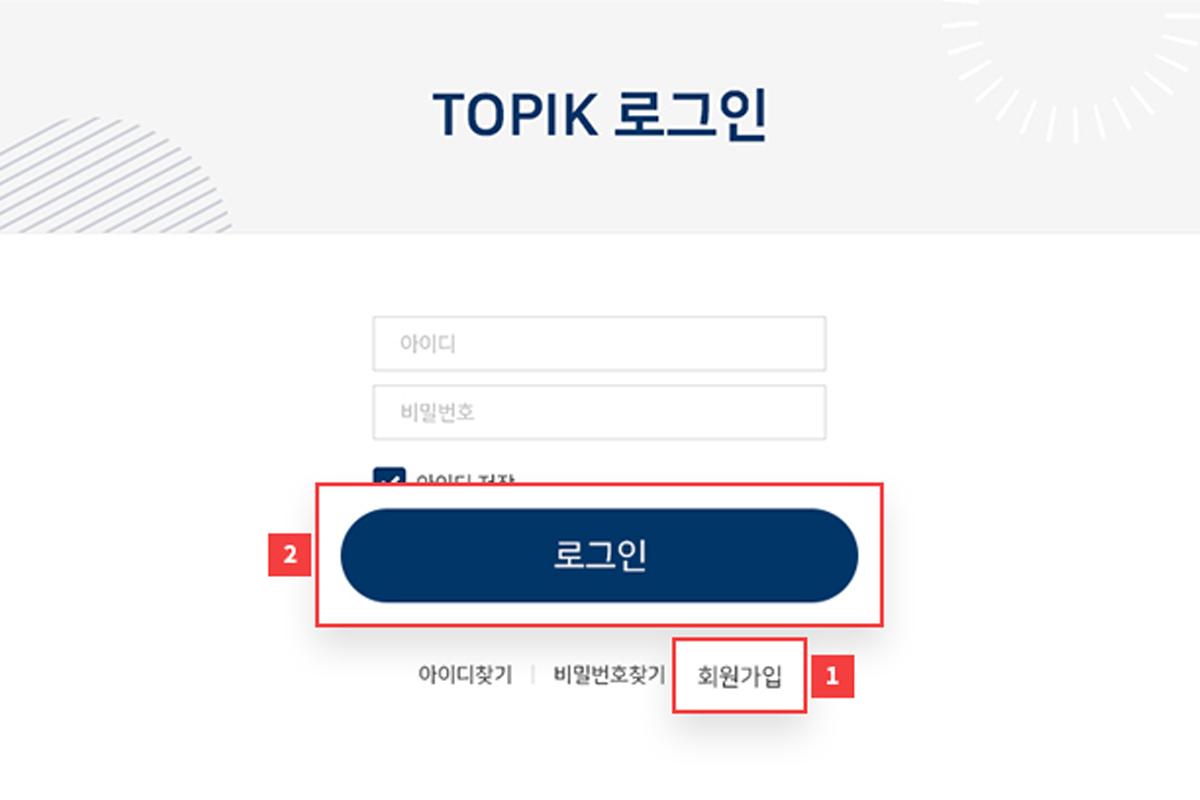 | 1. Check the payment status and application status. 2. You can also check the application status in the "My Page" menu. |
| Step 2 | Register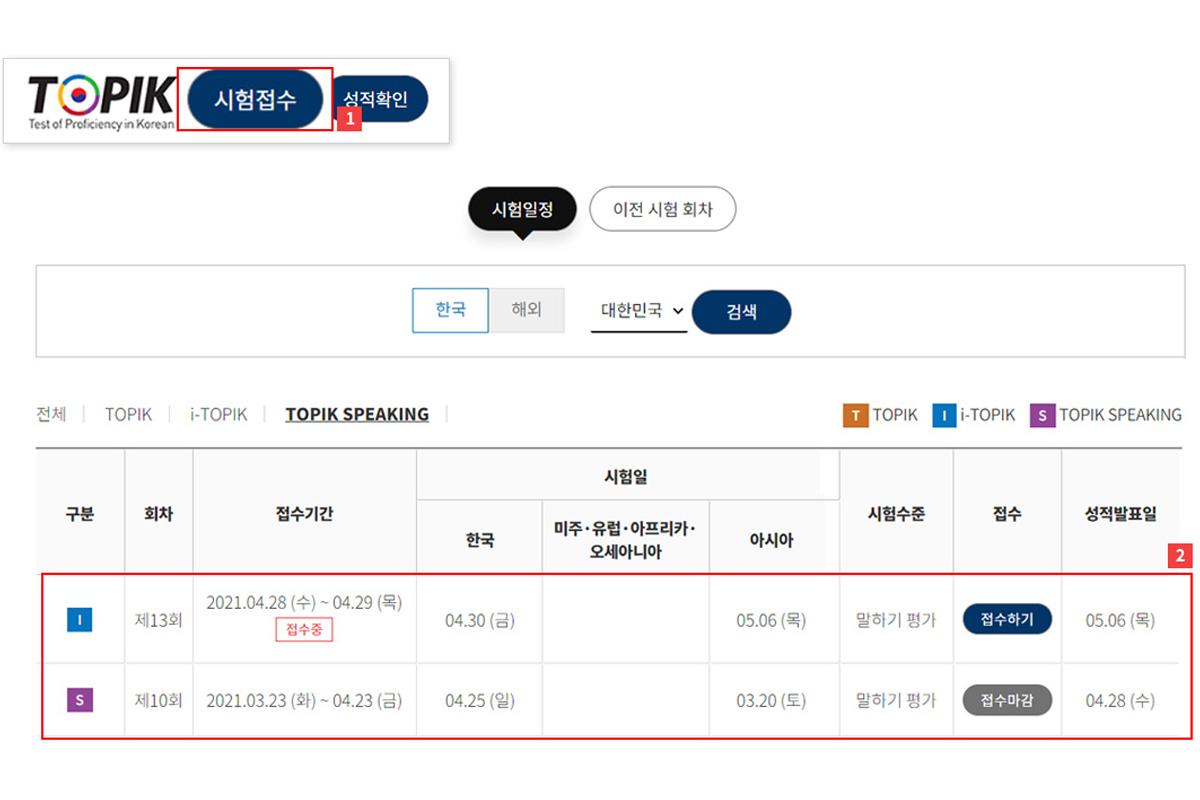 | 1. Click on the "Test Registration" menu. 2. Check the test registration schedule and make sure it is within the registration period. You cannot register if it is not within the registration period. |
| Step 3 | Select Test Center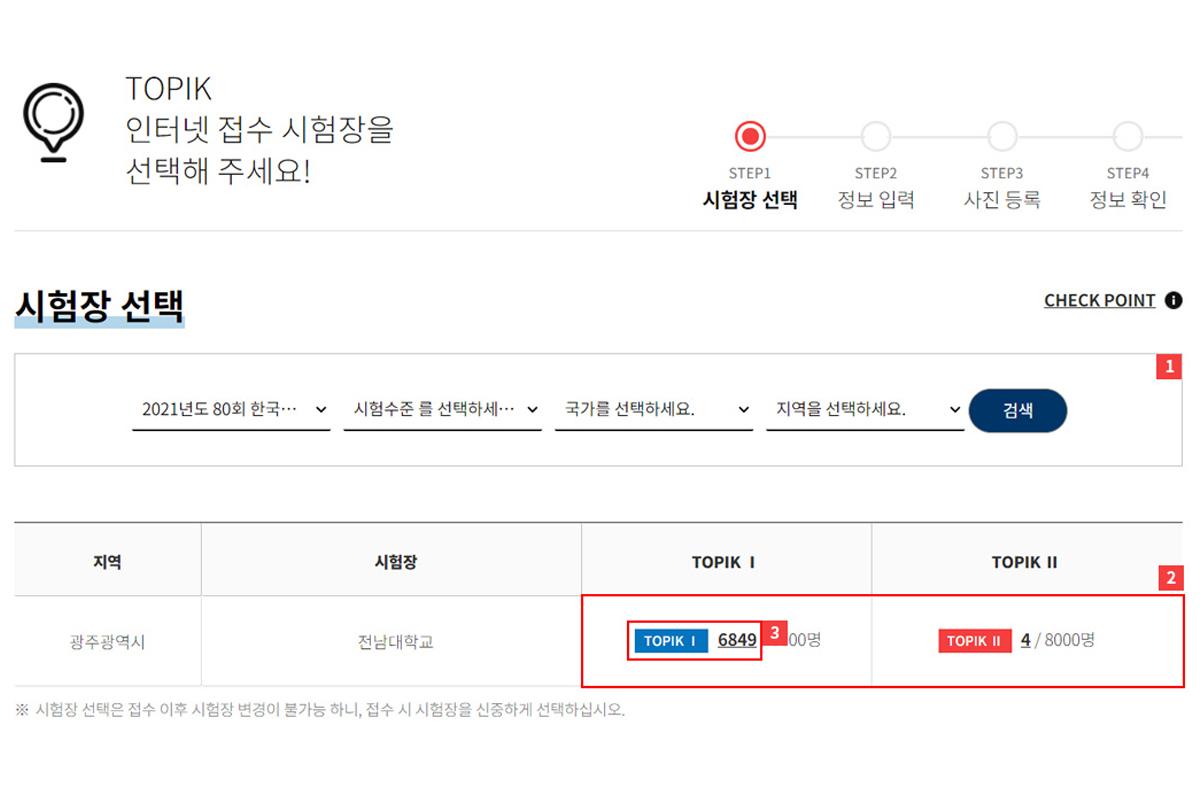 | 1. Search for the desired test center or check the list of test centers below. 2. The number of applicants and capacity for each test center are displayed. If the capacity is full, you cannot apply anymore. 3. Click on the desired test level for the chosen test center. |
| Step 4 | Enter Information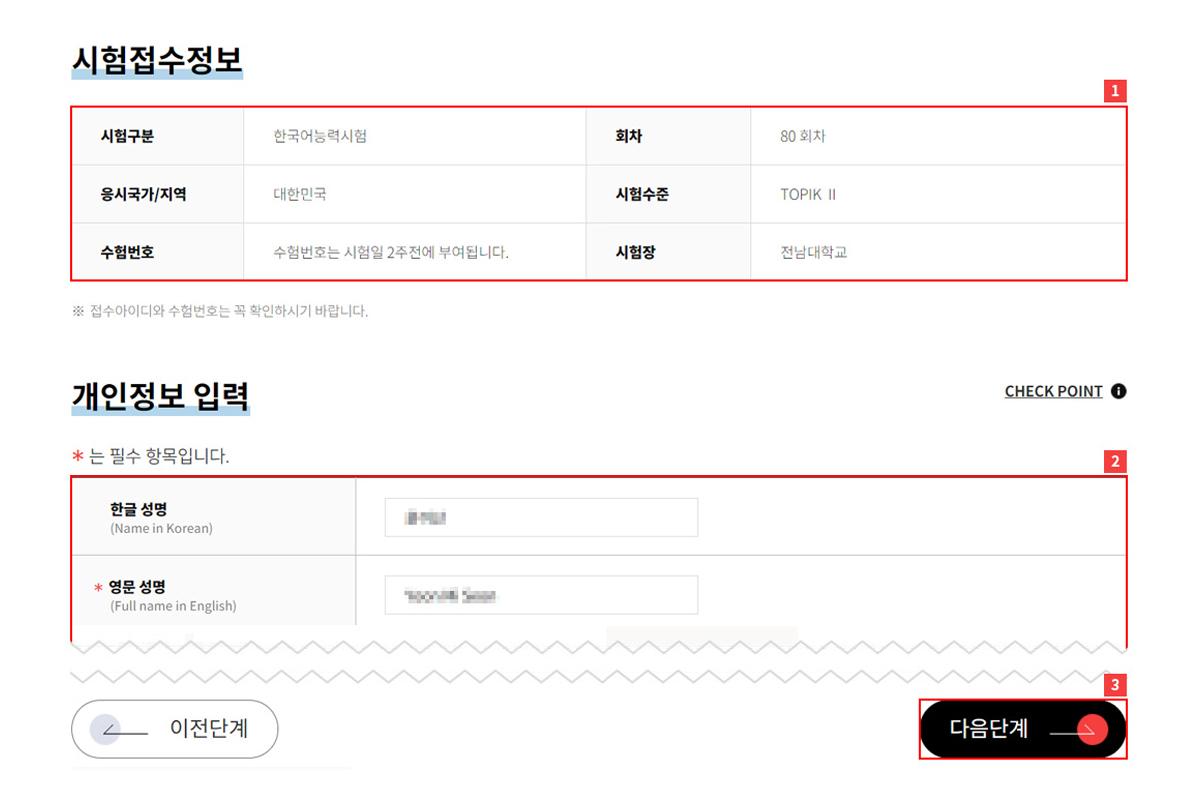 | 1. Check the test level, test venue, and other test registration information. 2. Enter your personal information and click the next button. |
| Step 5 | Regsiter Photo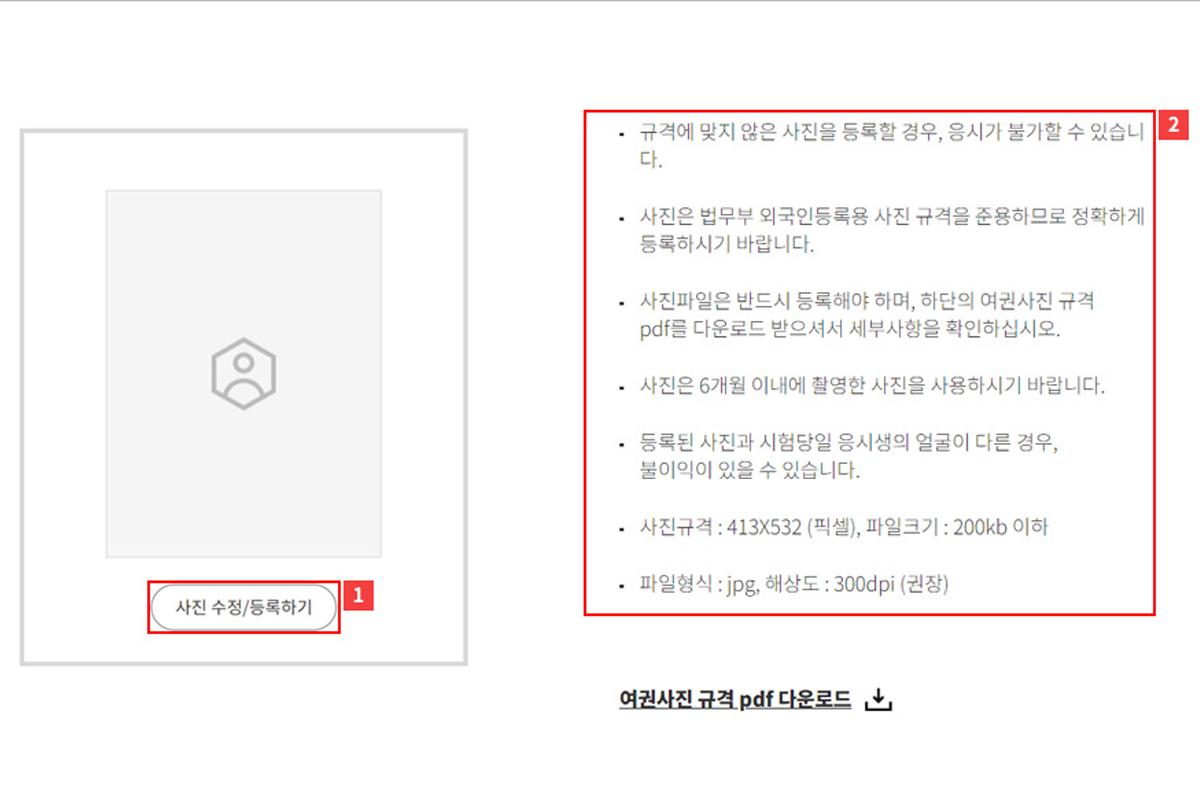 | 1. Click the "Edit/Register Photo" button to register your photo file. 2. When registering your photo, make sure it meets the standard photo requirements. If the photo on your admission ticket and your face on the test day do not match, you may face disadvantages. |
| Step 6 | Confirm/Edit Information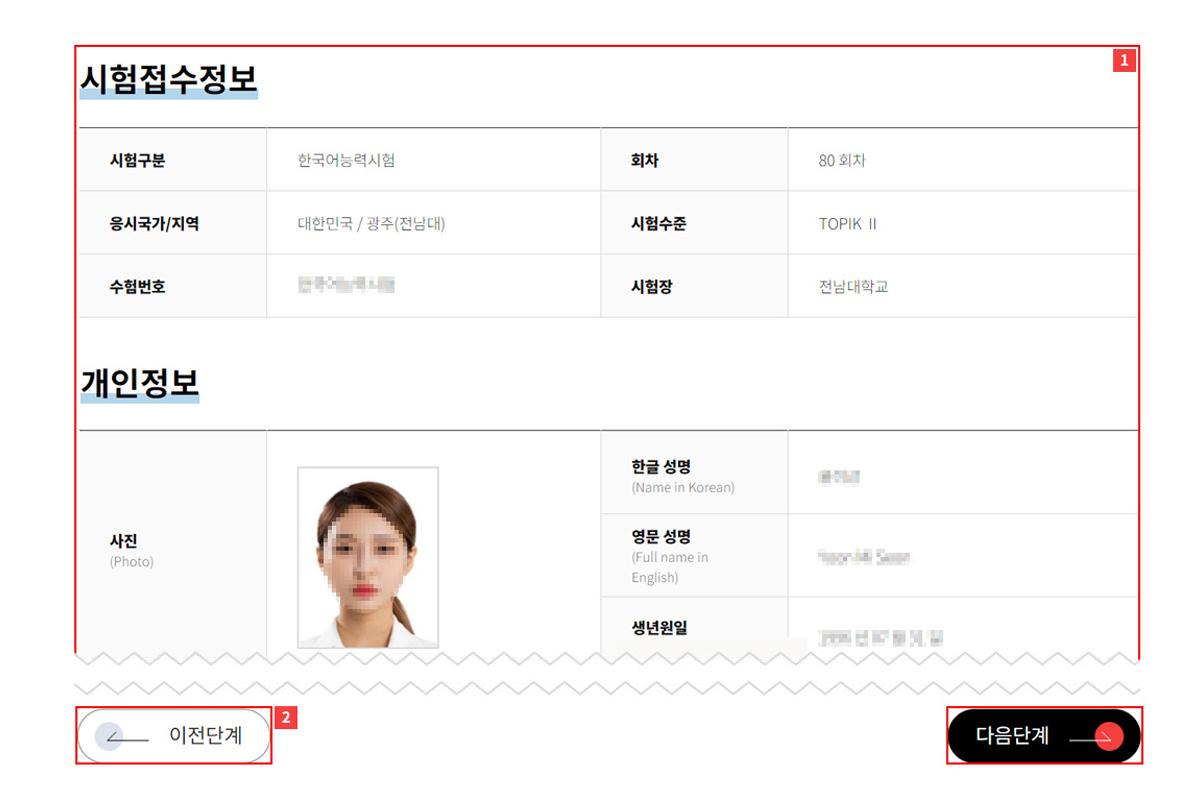 | 1. Check the exam level, exam venue, and personal information that you have registered, then click the next step button. 2. If you find any errors in the registered information, click the previous step button. |
| Step 7 | Payment for Exam Fee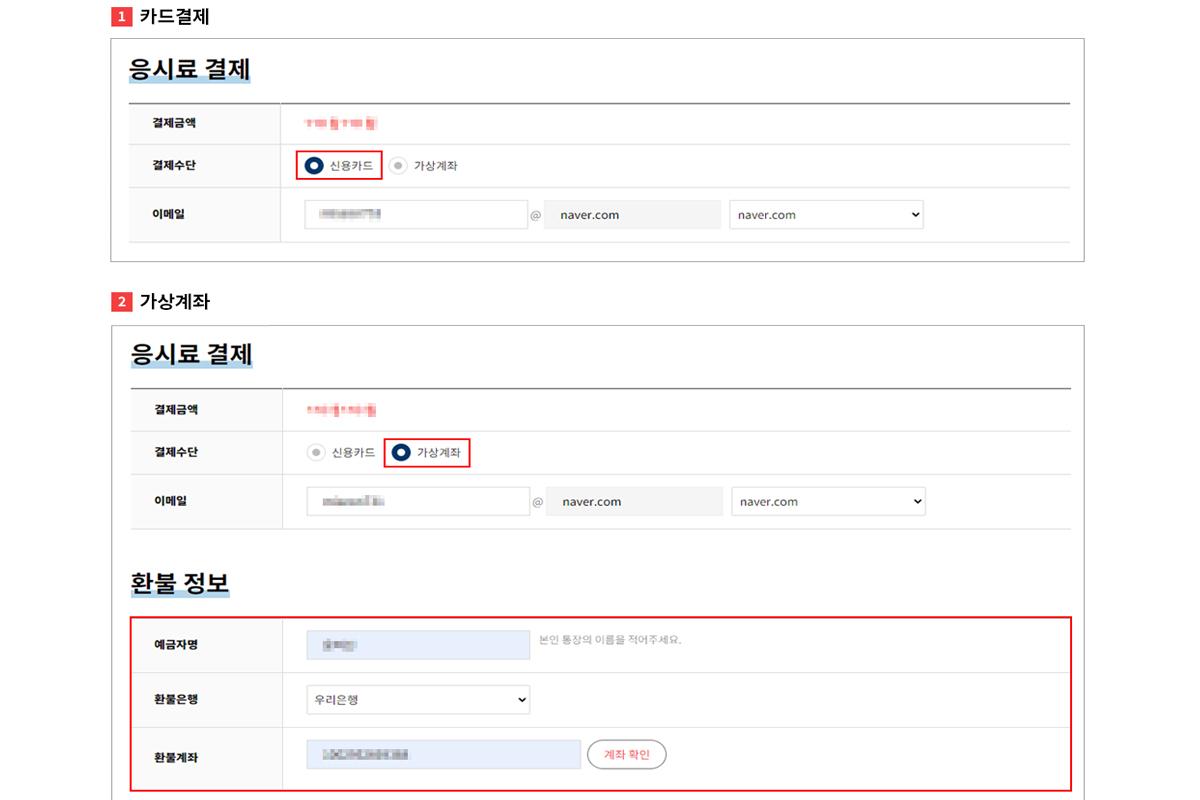 | 1. Payment can be made by credit card or virtual account. 2. If you choose to pay by virtual account, you need to enter refund information additionally. Since each virtual account has a different account number assigned to each applicant, it is impossible to confirm the payment if deposited into someone else's virtual account. |
| Step 8 | Confirm Registration Information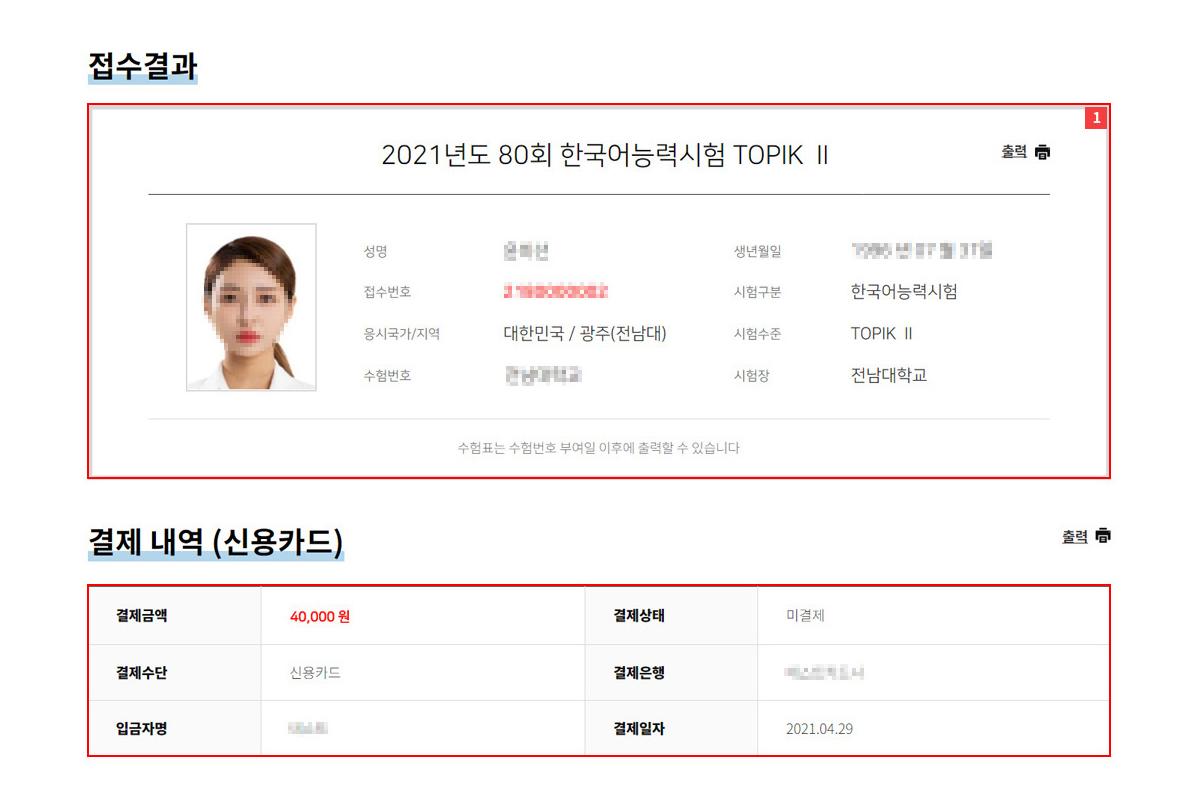 | 1. Check payment status and application results. 2. You can also check your application status on the My Page menu. |
Things To Keep In Mind
On the day of the TOPIK test, you need to bring your ID and writing materials.
Electronic devices, including calculators, are not allowed and must be submitted according to the instructions of the supervisor at the start point.
Click here to see the instructions for filling out the answer sheet!
TOPIK registration is conducted through regional split registration, and from the first to the third day, registration is only available via PC. From the fourth day onwards, registration is available on both PC and mobile devices, subject to availability.
You can check your scores and print out your score report starting at 3:00 pm on the day of each test result announcement.
You can practice TOPIK exam questions by clicking on the link here. In addition, you can find TOPIK listening files and past exam questions in the learning materials section.
You can find the 2023 TOPIK test schedule here.
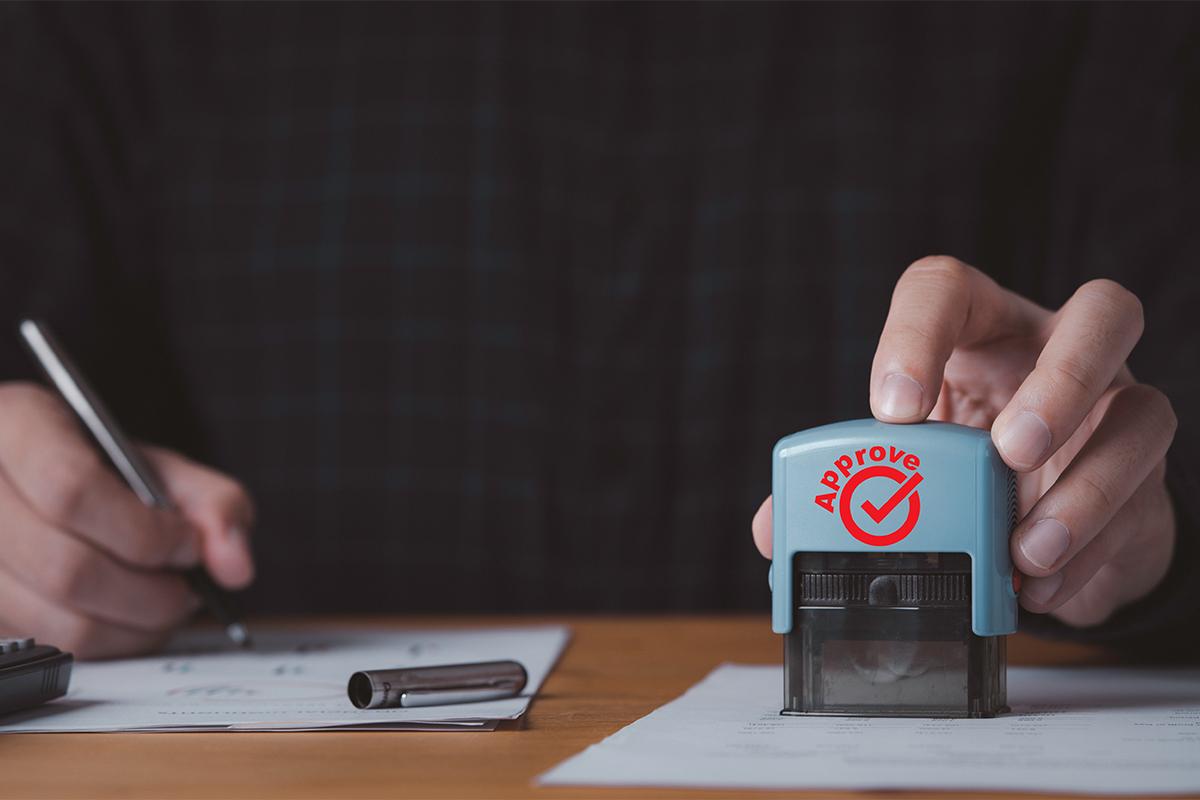
We hope this is helpful for those that plan to take the TOPIK soon! If you have any questions or concerns, please leave a comment below or send us an email at help@creatrip.com. You can follow us on Instagram, TikTok, Twitter, and Facebook to stay updated on all things Korea!
Sources: Official TOPIK Site / 한국유학종합시스템




